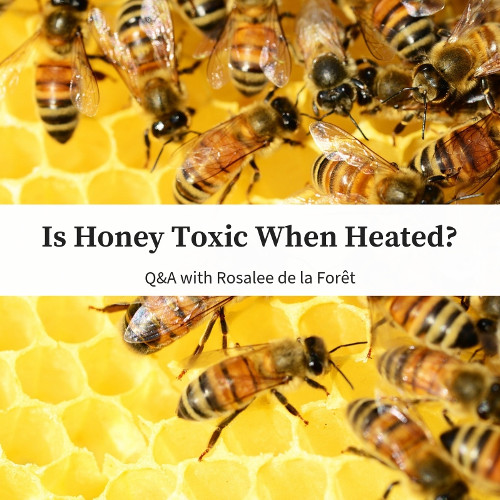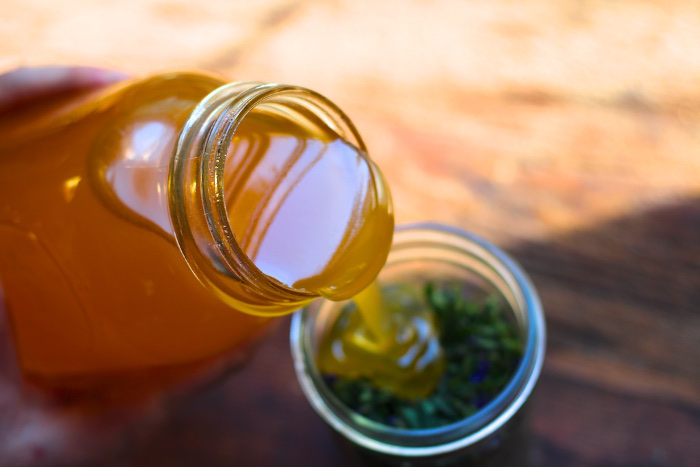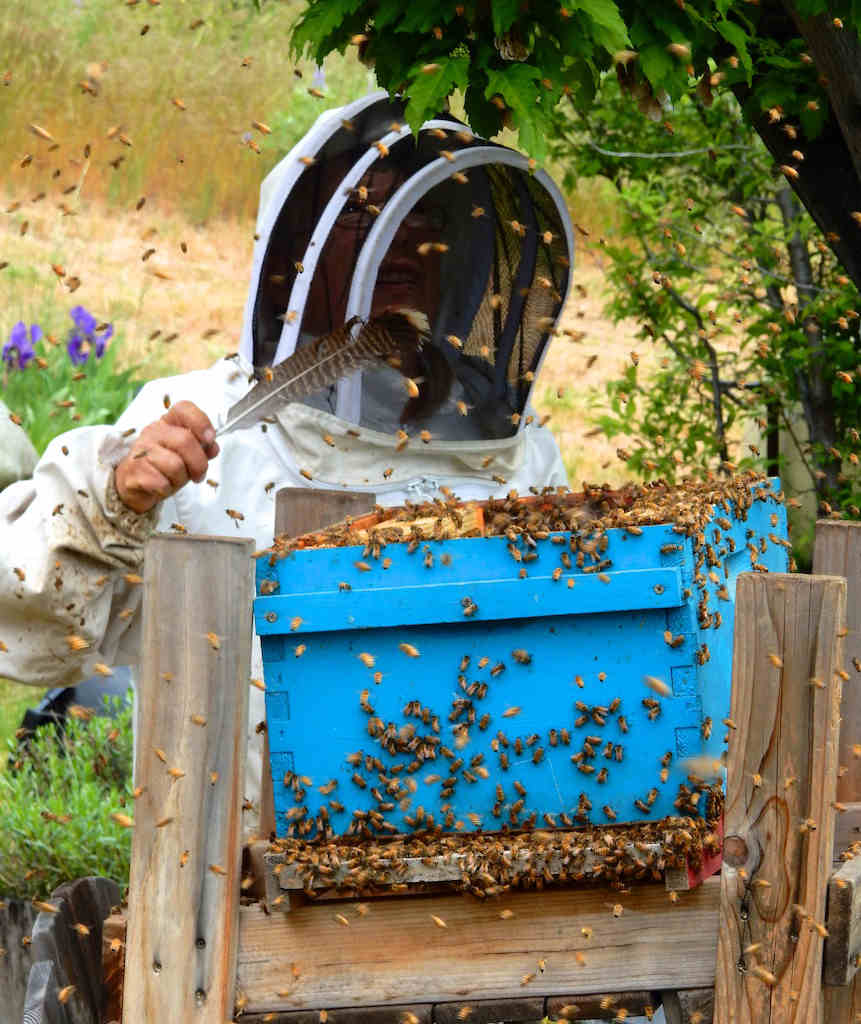Get weekly tips, recipes, and my Herbal Jumpstart e-course! Sign up for free today.
Is Honey Healthy When Heated?
Share this! |
|
Answer for Is Honey Healthy When Heated?
I exclusively use honey in most of my cooking and recipes. I can’t even remember the last time I bought sugar. Assuredly, it was many years ago. I choose honey because it is, by far, the most sustainable option in terms of sweeteners. My dear friend Susie keeps hives in our yard and each year we get about a gallon of that sweet golden honey.
Raw honey has many benefits and is full of naturally occurring enzymes that are admittedly decreased when honey is heated (similar to heating fruits and vegetables). When using honey specifically for your immune system, it’s best to avoid heating it. If possible, add honey to teas or syrups after the brew has been removed from direct heat, even better if it is allowed to cool for awhile.
While it is largely agreed that raw unheated honey is best for healing purposes, is it toxic when heated?
It is widely repeated that Ayurvedic texts say you should never heat honey because it will become toxic. One of the claims is that heated honey impairs digestion (by creating ama).
Some scientific studies have also shed some light onto this, although this can be a bit confusing to sort through (and it begins with a mouthful of strange words).
Studies have shown that when honey is heated, hydroxymethylfurfuraldehyde (HMF), a constituent within honey, is increased. Unethical rat studies have shown that, when pure HMF is injected into rodents, they can develop tumors. Many have used this as evidence that honey should not be heated. A closer look reveals a lot more to this story.
First of all, an increase of HMF is not specific to heated honey. It’s also true of any heated or even stored sweeteners, including sugars and cereals. It’s also found in other commonly consumed things like coffee and balsamic vinegar. If you choose to avoid eating heated honey due to HMF concerns you will also want to limit heated, stored or dehydrated things like: sugars, cereals, coffee, dairy products, dried fruits and even fresh fruits and vegetables high in sugars.
HMF even has a more nuanced story. While it has been shown to be carcinogenic when injected into rats at high dosages, more recent studies have also shown it to have benefits.
“In most previous studies, HMF has been reported to have negative effects on human health, such as cytotoxicity toward mucous membranes, the skin and the upper respiratory tract; mutagenicity; chromosomal aberrations; and carcinogenicity toward humans and animals. However, in more recent extensive studies, HMF has been proved to have a wide range of positive effects, such as antioxidative, anti-allergic, anti-inflammatory, anti-hypoxic, anti-sickling, anti-hyperuricemic effects.”1
Let me be clear. I’m not recommending you inject yourself with HMF! However, it has been shown to have a complexity that goes beyond “this is toxic”.
Some people will choose not to heat honey based on Ayurvedic recommendations and I can respect that. There is a lot of wisdom in ancient knowledge.
However, according to the current research it is unlikely that the amounts of HMF found in heated honey would cause harm. I choose to continue to use honey in baked goods because it is the most sustainable option for me. The honey from bees who are gathering nectar outside my door is far more sustainable than importing sugars grown in tropical locations. I also deeply respect the work of the bees, and, as a result, limit my use of honey to special occasions and treats. My recipes call for significantly less honey than most traditional recipes.
For an in-depth look at HMF see this review published in 2018.
References for Is Honey Healthy When Heated
1. Shapla, Ummay Mahfuza, Md Solayman, Nadia Alam, Md Ibrahim Khalil, and Siew Hua Gan. "5-Hydroxymethylfurfural (HMF) Levels in Honey and Other Food Products: Effects on Bees and Human Health." Chemistry Central journal 12, no. 1 (2018): doi:10.1186/s13065-018-0408-3.

Rosalee is an herbalist and author of the bestselling book Alchemy of Herbs: Transform Everyday Ingredients Into Foods & Remedies That Healand co-author of the bestselling book Wild Remedies: How to Forage Healing Foods and Craft Your Own Herbal Medicine. She's a registered herbalist with the American Herbalist Guild and has taught thousands of students through her online courses. Read about how Rosalee went from having a terminal illness to being a bestselling author in her full story here.


